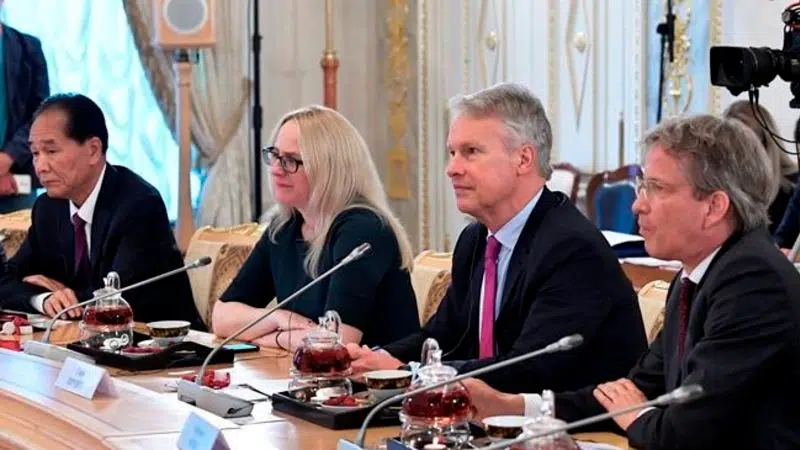
Putin says Russia didn’t meddle in US vote, despite evidence
ST. PETERSBURG, Russia — Russian President Vladimir Putin on Thursday reaffirmed his staunch denial that his government meddled in the 2016 U.S. presidential election despite the extensive evidence to the contrary, and insisted Moscow has no intention of interfering in any future votes, either.
Speaking in response to a question from The Associated Press during a meeting with chief executives of international news agencies in St. Petersburg, the Russian leader said that “we didn’t meddle, we aren’t meddling and we will not meddle in any elections.”
Putin and other Russian officials have hotly denied any interference with the U.S. vote to help Donald Trump win the presidency, even though U.S. special counsel Robert Mueller has uncovered evidence of a Kremlin operation to interfere with the 2016 vote. He charged 12 Russian military intelligence officers with breaking into Democratic Party emails, and also indicted other Russians who used phoney social media accounts to spread divisive rhetoric and to undermine the U.S. political system.
